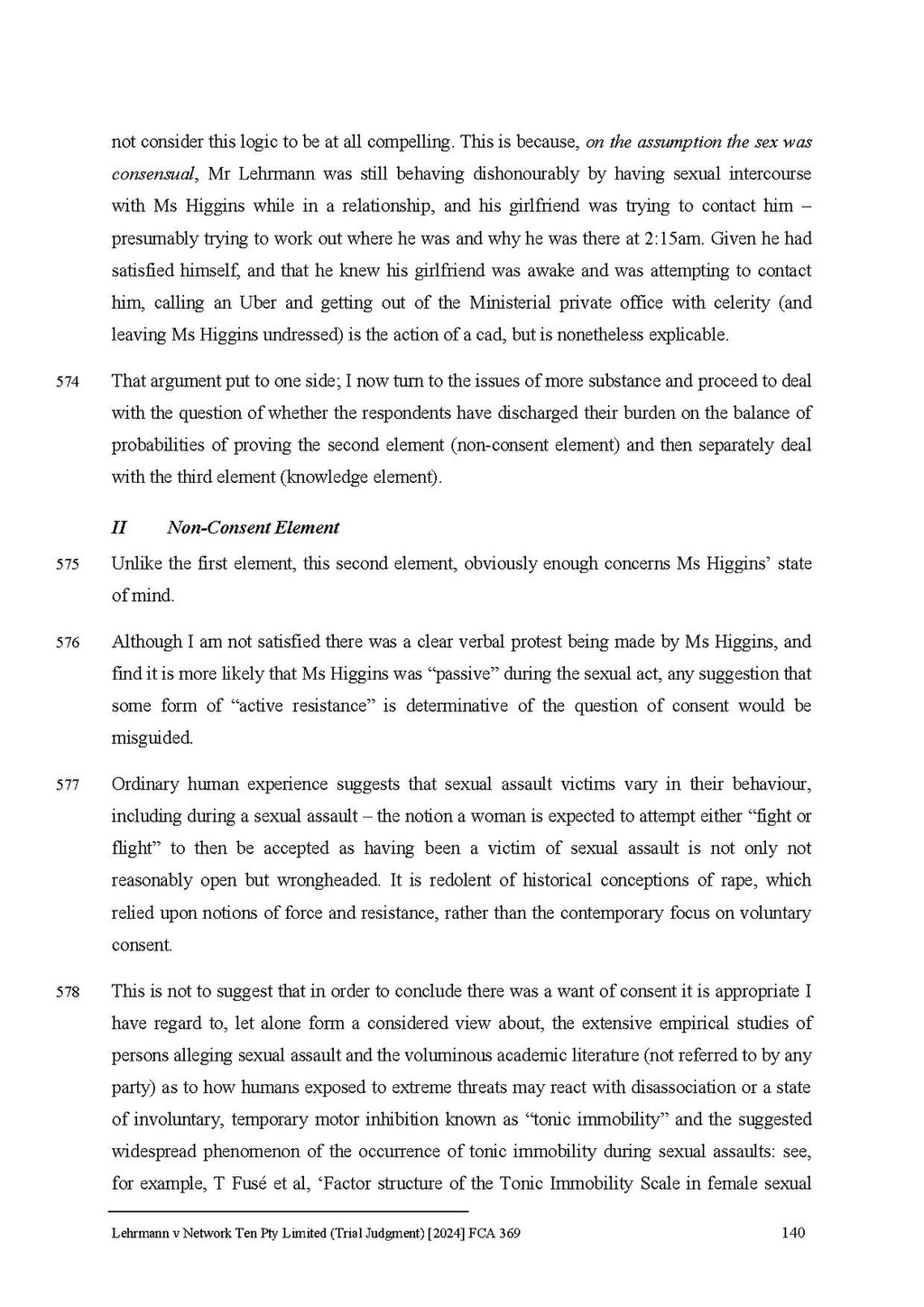not consider this logic to be at all compelling. This is because, on the assumption the sex was consensual, Mr Lehrmann was still behaving dishonourably by having sexual intercourse with Ms Higgins while in a relationship, and his girlfriend was trying to contact him – presumably trying to work out where he was and why he was there at 2:15am. Given he had satisfied himself, and that he knew his girlfriend was awake and was attempting to contact him, calling an Uber and getting out of the Ministerial private office with celerity (and leaving Ms Higgins undressed) is the action of a cad, but is nonetheless explicable.
574 That argument put to one side; I now turn to the issues of more substance and proceed to deal with the question of whether the respondents have discharged their burden on the balance of probabilities of proving the second element (non-consent element) and then separately deal with the third element (knowledge element).
IINon-Consent Element
575 Unlike the first element, this second element, obviously enough concerns Ms Higgins' state of mind.
576 Although I am not satisfied there was a clear verbal protest being made by Ms Higgins, and find it is more likely that Ms Higgins was "passive" during the sexual act, any suggestion that some form of "active resistance" is determinative of the question of consent would be misguided.
577 Ordinary human experience suggests that sexual assault victims vary in their behaviour, including during a sexual assault – the notion a woman is expected to attempt either "fight or flight" to then be accepted as having been a victim of sexual assault is not only not reasonably open but wrongheaded. It is redolent of historical conceptions of rape, which relied upon notions of force and resistance, rather than the contemporary focus on voluntary consent.
578 This is not to suggest that in order to conclude there was a want of consent it is appropriate I have regard to, let alone form a considered view about, the extensive empirical studies of persons alleging sexual assault and the voluminous academic literature (not referred to by any party) as to how humans exposed to extreme threats may react with disassociation or a state of involuntary, temporary motor inhibition known as "tonic immobility" and the suggested widespread phenomenon of the occurrence of tonic immobility during sexual assaults: see, for example, T Fusé et al, 'Factor structure of the Tonic Immobility Scale in female sexual
